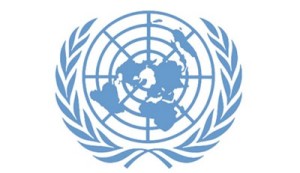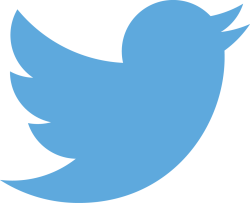 International days, weeks, years and decades, as designated by the United Nations General Assembly, offer excellent outreach opportunities for nonprofit organizations, non-governmental organizations (NGOs), civil society organizations, charities, government initiatives and other agencies focused on improving and enriching communities and individuals, as well as protecting the environment. There is a commemorative day, as designated by the United Nations general assembly, for just about any subject you can think of. Here’s just a sample:
International days, weeks, years and decades, as designated by the United Nations General Assembly, offer excellent outreach opportunities for nonprofit organizations, non-governmental organizations (NGOs), civil society organizations, charities, government initiatives and other agencies focused on improving and enriching communities and individuals, as well as protecting the environment. There is a commemorative day, as designated by the United Nations general assembly, for just about any subject you can think of. Here’s just a sample:
and on and on and on. Now is a great time to look through the list and think about how you are going to leverage these days for your initiative’s mission.
You can use these designations to tie in your organization’s events and programs, through
- issuing press releases about your work and how it relates to the day, week or year
- posting social media messages that relate to the day, week or year’s theme
- writing op-ed pieces for local media
- blogging on a related topic, posting social
- offering yourself for interviews to radio and TV
- holding a special event that ties in with the day, week or year
If you mention these days, weeks, years, etc. on your blog and web site, and use the official Twitter tags for the events, you increase the chance of your organization coming to the attention of anyone doing a search online for information about these days, weeks, etc. and reaching an even wider audience.
For a list of these UN days, weeks, years and decades, see either this part of the UNESCO web site or this page by the UN Association of Canada. HOWEVER, note that, as of the start of December 2017, these calendars have not been updated with the 2018 designation. It’s not known of the UN will designate 2018 with any theme. The General Assembly has declared 2019 as the International Year of Indigenous Languages.
The UN Decade of Action on Nutrition is 2016 to 2025, which means it’s still happening in 2018. The designation aims to trigger intensified action to end hunger and eradicate malnutrition worldwide, and ensure universal access to healthier and more sustainable diets for all people.
The International Decade for People of African Descent is 2015–2024, which means it’s also still being celebrated in 2018, as is the United Nations Decade of Sustainable Energy for All, which is 2014–2024.
The decade of 2011–2020, also all still being celebrated, has four designations:
- Third International Decade for the Eradication of Colonialism
- United Nations Decade on Biodiversity
- Decade of Action for Road Safety
- United Nations Decade for Deserts and the Fight against Desertification
There’s also the International Decade for the Rapprochement of Cultures (2013-2022), which is designated by UNESCO, a UN initiative, but not the General Assembly. Rapprochement means reconciliation, increased understanding, restoration of harmony, agreement, cooperation or harmonization. The decade is meant to promote mutual understanding and reciprocal knowledge of cultural, ethnic, linguistic and religious diversity, and to foster dialogue for sustainable development and its ethical, social and cultural dimensions. The initiative offers a number of free resources you can use to promote the themes of the decade.
Also see:
- 14 (was 13) things you do to annoy me on social media
- Daily, Mandatory, Minimal Tasks for Nonprofits on Facebook & Twitter
- Nonprofits & NGOs: you MUST give people a way to donate online
- The importance of Twitter lists
- The awesome power of tweet tags
- Why I won’t follow you on Twitter
- The dark side of the Internet for mission-based organizations
- Measuring social media success? You’re probably doing it wrong.
- Evaluating Online Activities: Online Action Should Create & Support Offline Action
- Volunteers can help you reach more people on Facebook
- How to handle online criticism of your organization.
- Snapchat’s Potential Power for Social Good – with REAL examples.
- Stages of Maturity in Nonprofit Orgs Using Online Services.
- How Not-for-Profit and Public Sector Agencies REALLY Use Online Technologies
- Could a Twitter exchange lead to change in a Kentucky nonprofit law?
- Police: use social media to invite community participation, show compassion
- How do international NGOs use Twitter?
- What nonprofit & government agencies “get” FaceBook?
- Subscribe to these Twitter lists – or recommend additions
- Addressing criticism, misinformation & hate speech online
- Social media: cutting both ways since the 1990s
- Basic Press Outreach for Mission-Based Organizations

